Over 1,000 prisoners to be freed in largest prisoner swap: Yemeni official
A Yemeni official says the Houthi Ansarullah movement and the former Saudi-allied government are set to swap more than 1,000 prisoners under a UN-brokered peace deal struck in Switzerland last month.
Abdul Qader al-Murtaza, chairman of the Houthi-run Committee for Prisoners’ Affairs said in a tweet that the warring sides would exchange some 1,081 prisoners on Thursday and Friday.
“The transaction will be executed, with God’s help, on the scheduled dates today and tomorrow,” Murtaza said on Thursday, adding that “the preparations have been completed by all parties.”
UN envoy Martin Griffiths has hailed the September deal as a “very important milestone.”
A spokeswoman for the International Committee of the Red Cross (ICRC), which is handling the logistics of the operation, said their teams were present at a number of different airports involved in the transfer.
“The preparations are ongoing, if everything goes as planned, we hopefully expect the release operation to take place in the coming few hours,” she said.
Yemen’s al-Masirah television also said the first group of prisoners was expected to arrive on Thursday at the international airport in the Houthi-held capital Sana’a.
According to a Reuters witness, an ICRC airplane which is expected to carry Houthis released from captivity by the Saudi-led coalition has landed in Sayoun airport in Hadhramaut region.
Houthis free two American inmates to bring 240 Yemenis home
The prisoner exchange comes after the release on Wednesday of two Americans detained in Yemen as part of the deal that also secured the return of more than 200 Yemenis stuck in Oman as a result of the Saudi-led blockade of the war-torn country.
The swap apparently involved Saudi Arabia and Oman, which frequently plays the role of broker in the region.
Kash Patel, a deputy assistant to US President Donald Trump, who worked on the agreement, identified the freed US nationals as Sandra Loli, a “humanitarian worker” who was held in Yemen for three years, and Mikael Gidada, a “businessman” detained for a year, the Wall Street Journal reported on Wednesday.
The remains of a third American captive, Bilal Fateen, was also being sent back to the United States.
Little had been known about the Americans held in Yemen until the announcement of their release.
Houthi leaders have previously announced detentions of foreign humanitarian workers found to be spying and diverting some of the badly needed aid sent into impoverished Yemen.
Ansarullah also reported receiving some 240 Yemenis from Oman.
Houthi spokesman Mohammed Abdulsalam tweeted that the Yemenis returned to the capital, Sana’a, included people who had either been stranded in Oman or were casualties of the Saudi-led war who had traveled there during UN-brokered peace talks held in Sweden in 2018.
The Yemeni official said Riyadh had blocked the Yemenis from returning home after they arrived in Oman two years ago.
“Today, we were pleased to receive some wounded brothers who were stuck outside the country as a result of the brutal and continuous siege on our country. The coalition obstructed their exit and entry, one of its war crimes against Yemenis,” Houthi tweeted.
He said the United Nations also failed to bring the wounded Yemenis back from Oman in line with the agreement reached in Sweden.
Saudi Arabia and a number of its regional allies launched the devastating war on Yemen in March 2015 in order to bring former president Abd Rabbuh Mansur Hadi back to power.
The US-based Armed Conflict Location and Event Data Project (ACLED), a nonprofit conflict-research organization, estimates that the war has claimed more than 100,000 lives over the past five years.
Saudi Arabia and the United Arab Emirates have purchased billions of dollars’ worth of weapons from the United States, France and the United Kingdom in their war on Yemen.
Riyadh and its allies have been widely criticized for the high civilian death toll resulted from their bombing campaign in Yemen.
The UN says over 24 million Yemenis are in dire need of humanitarian aid, including 10 million suffering from extreme levels of hunger.
VIDEO | Tehran sky illuminates over
Maduro’s abduction: China says US cannot act as world’s ‘police’ or ‘judge’
VIDEO | Australians protest over US action in Venezuela
Cuba declares national mourning for 32 citizens killed in US raids on Venezuela
Iran: US must release kidnapped Venezuelan president
After US aggression against Venezuela, Mexico could be next: Report
Qalibaf: Protesters must be heard but foreign-linked agitators will be dealt with
VIDEO | German government refuses to condemn US aggression against Venezuela




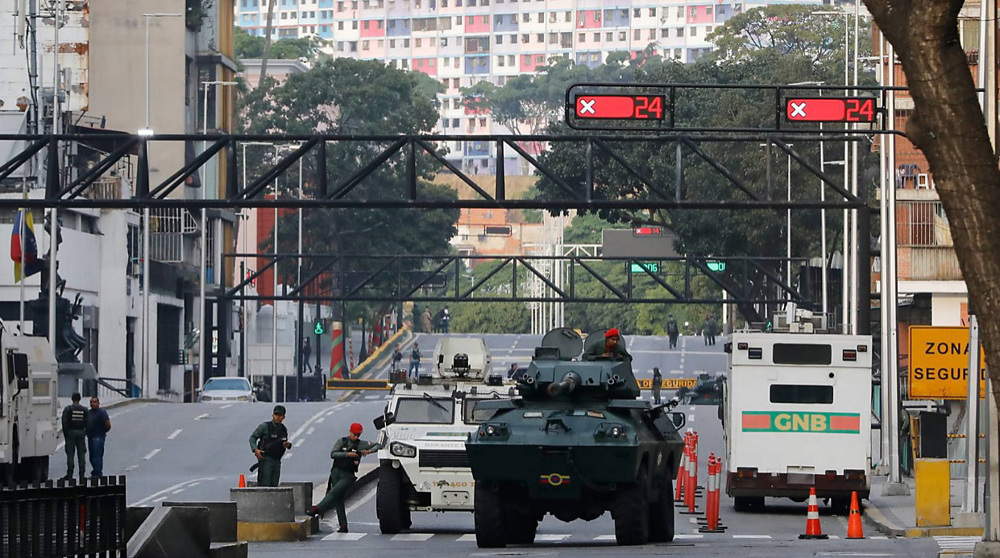

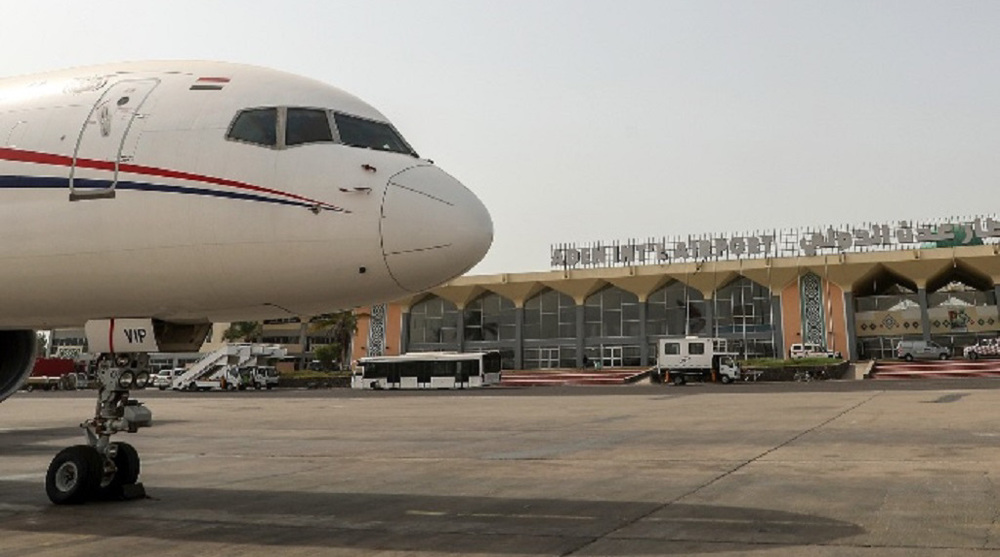



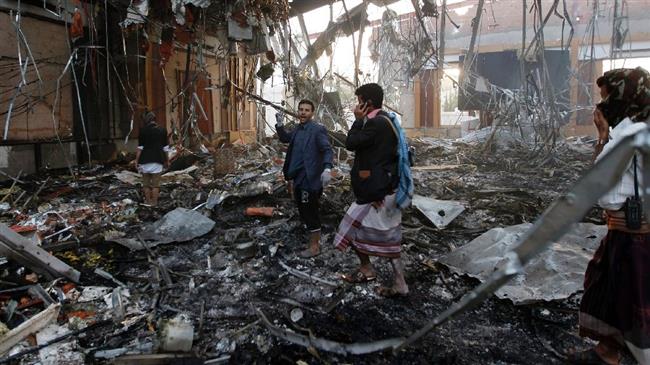
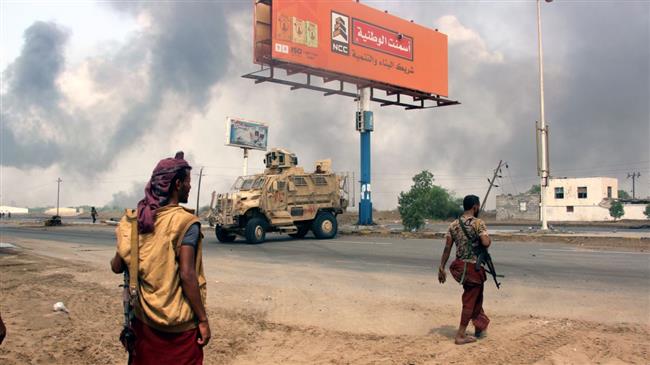
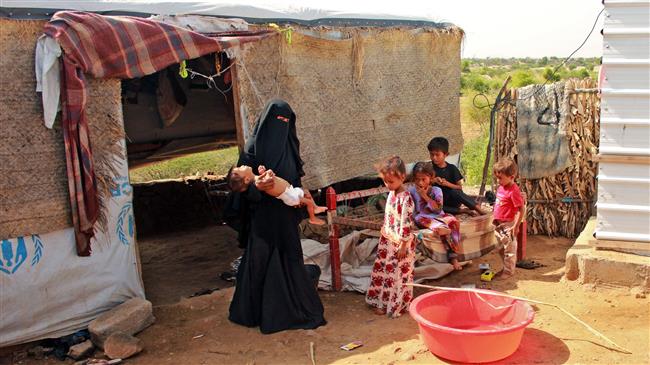

 This makes it easy to access the Press TV website
This makes it easy to access the Press TV website